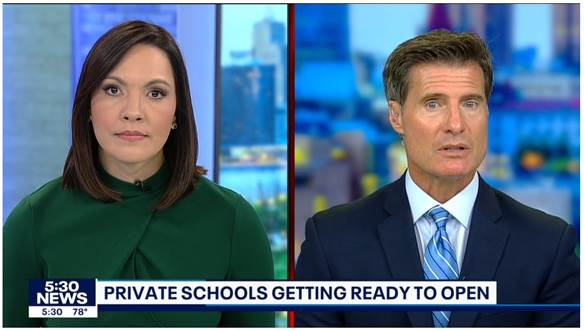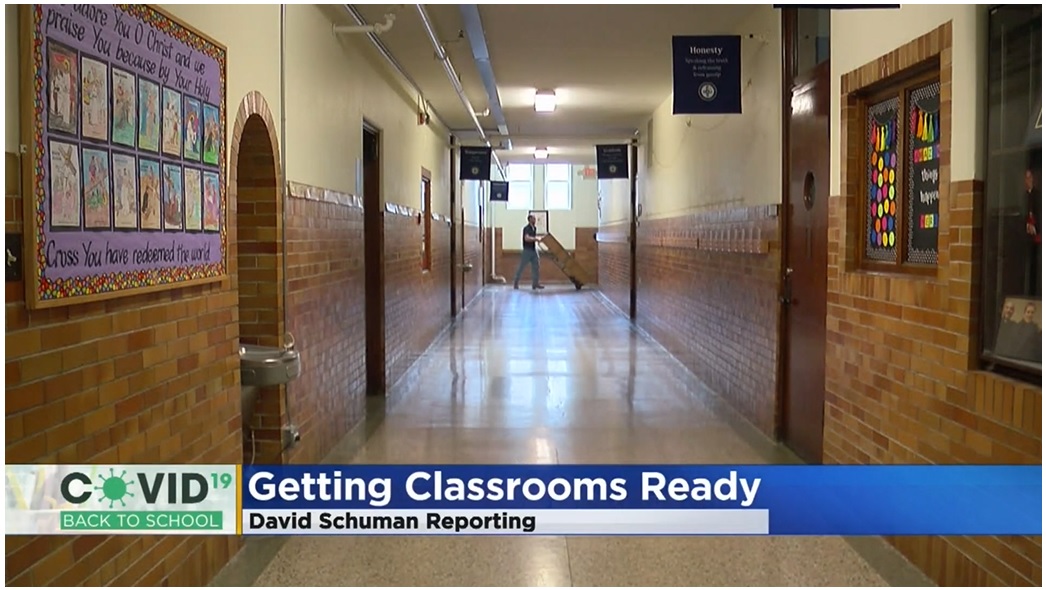
FAQ
What are ESAs?
Every day we hear more stories about kids being left behind and parents being pushed out of the decision-making process. Whether it be issues with the achievement gap, particular curriculum choices or other top-down education system decisions, the only way to solve these problems is by empowering parents through Education Savings Accounts (ESAs).
ESAs are a funding system that recognizes parents as the primary decision makers in the educational life of their child and frees children from failing school systems. They empower parents by granting access to the financial resources to send their child to the school which can most effectively meet their needs, whether that school be public or private, religious or secular. By enacting ESAs, we are giving Minnesota families the flexibility and authority over their education financing.
Will enacting Education Savings Accounts be too costly for our state’s budget?
The cost of school choice programs like Education Savings Accounts, Opportunity Scholarships and others is minimal, and in the long-run, the state will see an overall cost savings. It is important to highlight that education dollars belong to the students – not the school or the district they are educated in. So, these dollars should be accessible in a way that best benefits individual students and their families.
Why are Education Savings Accounts Important?
Parents know their children best and our educators understand that it is imperative to work with families to fully educate a child in the best possible manner. It is crucial we empower parents to be fully immersed in planning an education plan for their kids. By empowering families and increasing parental choice, we are giving Minnesota children the opportunity to thrive in a school that best fits their needs.
Are there other states that currently allow ESAs to empower parents?
Where does the money come from?
Since the dollars spent by the State in funding education are intended for the benefit of the child and not school districts, they are meant to follow the student not the school itself.
ESAs work because they give parents direct control over the dollars the State has already allocated for their child’s education, allowing them, in turn, to purchase the educational services (tuition, tutoring, internet access, etc.) in an educational environment that they think best for their child.
Because actual costs in non-public schools are typically lower than the amounts allocated for public schools, the dollars which remain unspent roll-over in the student’s account from year-to-year and can be used to pay for post-secondary education expenses.
Will Education Savings Accounts or other tax credits hurt our public education system by removing resources from public schools?
ESAs and other programs simply increase parental authority and allow Minnesotans to use the education funds allotted to their children as they see fit, because education dollars belong to the students, and not the public schools themselves. As with other tax credits and incentive programs, these programs are not meant to hurt one area, but benefit the overall system.
Will school choice programs benefit low-income families who could not otherwise afford tuition and non-traditional schools?
By providing targeted financial resources to families, including low and middle-income families, children have the opportunity to receive financing and scholarships that could cover most or even all of non-public school tuition costs.
Will these education programs only benefit those already attending non-traditional schools, or be accessible to help all Minnesota children?
Educational options should fit the needs of all students and these programs do just that by giving parents and students greater options and increased authority over their education decisions. These programs have the opportunity to help all families – regardless of where they students are currently enrolled.
Who are non-traditional schools accountable to if they are not under the public education system?
Due to their structure and increased involvement from parents and families, non-public schools are directly accountable to the parents and families themselves. Studies show non-public schools are actually more accountable with higher graduation rates than their public counterparts. Additionally, all private schools in Minnesota administer required assessments to meet appropriate benchmarks.
With ESAs, Minnesota families are given the flexibility and financial capability to bring about the best educational outcomes for their child. ESAs signal to the entire community that parents are the ones to whom the educational system must be accountable.
Why now?
We know this needs to change and our moment to truly make a difference is now. The only true way to address the issues in our education system is through increased parental choice and Education Savings Accounts (ESAs). This is why OAK is taking the lead to ensure we make the most of this moment for Minnesota families.
Why are parents better suited for these decisions that professional educators and administrators?
Parents know their children better than anyone else and therefore, have the right and duty to be informed about the educational content in their child’s classroom and the duty to evaluate whether that content is appropriate for their child or not. It is crucial we empower parents to be fully immersed in planning an education plan for their kids. By enacting ESAs, we are giving Minnesota families the flexibility and authority over their education financing.
How do we make ESAs a reality?
Parental empowerment and additional choice can all be possible for Minnesota families if we pass legislation enacting ESAs.
If you are one of the thousands of Minnesota parents concerned about the current education system, sign the petition below to show your support for parental empowerment and education choice and urge the Minnesota Legislature to pass Education Savings Accounts.












![[downloaded during free trial]](https://oakmn.org/wp-content/uploads/2025/11/iStock-1430368205-120x86.jpg)
